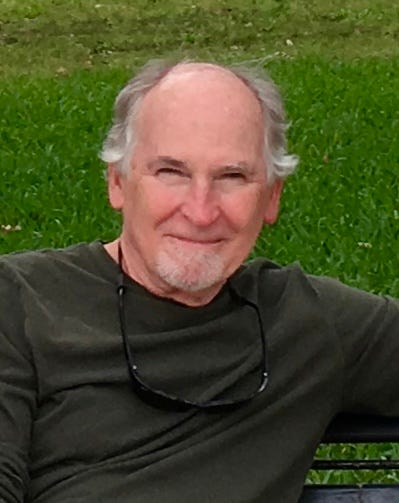South Carolina bars atheist from serving as election worker unless he swears oath to God
The state’s insistence on poll workers saying "so help me God" has turned a civic service into a religious loyalty test
This newsletter is free and goes out to over 22,000 subscribers, but it’s only able to sustain itself due to the support I receive from a small percentage of regular readers. Would you please consider becoming one of those supporters? You can use the button below to subscribe or use my usual Patreon page!
After the 2020 election, and hearing stories about all the chaos surrounding election interference, South Carolina native James Reel decided to become a poll worker. He went through all the requisite online training in late 2023 and he was ready to attend in-person sessions, all gearing up for the 2024 elections… but there was one problem.
State law said that all poll workers had to eventually take the following oath:
I do solemnly swear (or affirm) that I am duly qualified, according to the Constitution of this State, to exercise the duties of the office to which I have been appointed, and that I will, to the best of my ability, discharge the duties thereof, and preserve, protect and defend the Constitution of this State and of the United States. So help me God.
Reel, an atheist, knew he couldn’t say those last four words in good conscience, so he called the Greenville County Voter Registration and Elections Board and asked if he would be allowed to just not say that final sentence. It was, after all, a matter of his deeply held convictions.
They said no. And that effectively blocked Reel from becoming a poll worker.
The irony is that the oath even suggests a secular alternative. In the very first sentence, if your religious beliefs prevent you from swearing an oath to anyone who’s not God, you’re allowed to “affirm” the oath. That’s a religious accommodation that’s used all over the place, so why didn’t it apply to the final sentence?
The Freedom From Religion Foundation soon got involved in this case. They sent letters to the Elections Board and the State Election Commission explaining that forcing election workers to take a religious oath was unconstitutional. They pointed out that the Supreme Court said as much in 1961, and South Carolina itself said in 1997 that a religious test for public office couldn’t be enforced.
(In that latter case, Herb Silverman’s application to become a notary public was rejected after he crossed off “So help me God” from the oath. He had previously run for governor as the “candidate without a prayer.”)
Despite the legal precedent, the election authorities insisted that the oath was the oath. They couldn’t change it. They had no power to do that. Which meant the state was barring atheists from becoming poll workers unless they were willing to lie about their belief in God.
Now, in a lawsuit, FFRF says those officials are “coercing a statement of belief in a monotheistic deity by requiring nontheists or those worshiping more than one deity to swear ‘so help me God’ in order to serve as poll workers.”
Attorney Maddy Ziegler even pointed out that similar lawsuits in other states resulted in very quick victories:
In 2020, we successfully brought suit in federal court against the state of Alabama for requiring voters to sign a statement on their voter registration form that ended with “so help me God” with no secular alternative offered. In 2023, we successfully sued the state of New Jersey in federal court for requiring candidates for public office to swear an oath ending in “so help me God” in order to run for office. In both cases, as you have reportedly done here, the state officials responded to initial communications by simply stating there was no secular alternative. However, both of the states involved in these cases quickly settled after we brought suit because the law is clear: individuals cannot be forced to profess a belief in any god or religion in order to exercise a basic right. South Carolina cannot constitutionally require a citizen who wants to fulfill a civic duty to swear to a god to fulfill that duty.
None of that seemed to concern the officials who wrote back to FFRF last year. They all essentially said they were powerless to do anything about the oath.
That’s why FFRF is demanding a judge step in and prevent those officials from denying Reel (and everyone else who may be affected) from becoming poll workers:
The legal complaint requests a permanent injunction (a) prohibiting the defendants from requiring citizens who wish to serve as poll workers to swear “so help me God,” and (b) ordering the defendants to provide a secular affirmation that allows citizens to become poll workers without swearing “so help me God.” Reel is also requesting a declaratory judgment that the defendants have violated, and are continuing to violate, the U.S. Constitution by requiring all poll worker candidates to swear “so help me God” without the option of a secular affirmation.
When you’re reading all this, it’s easy to think this entire controversy could have been an email. South Carolina officials should have recognized the problem, raised their concerns with the relevant people in the attorney general’s office, and gotten this fixed quickly. Instead, no one wants to take any responsibility and the end result is that atheists and anyone else who doesn’t believe in the Christian God is shut out of a vital role in elections. That’s not just bureaucratic oversight. That’s an unconstitutional relic of Christian arrogance.
There’s no good reason to force people to pledge an oath to God if they want to manage elections. It’s discriminatory and a betrayal of the very Constitution these officials claim to defend. No one should be forcing citizens to invoke a deity as a condition of public service.
Reel’s situation could have been a moment for South Carolina to affirm that civic duty and appreciation of democracy don’t require divine endorsement. Instead, state officials are clinging to a religious oath that shames some of the very citizens most willing to serve their communities with fairness and integrity.
This isn’t just about one atheist’s right to work the polls, then. It’s about whether South Carolina believes its democracy belongs to all its people, or only to those who pray the right way.



Arrogance is the word. They can't conceive a world where they are not the bosses. That's the problem with monotheistic religions, they tend to be exclusionary in the name of the "universal truth" that only their worshippers get right.
Good luck to Mr Reel. At least, he have the best lawyers he can get to protect his constitutional rights.
Simple. Federal law (US Constitution) trumps state law (state constitutions).
South Carolina loses.